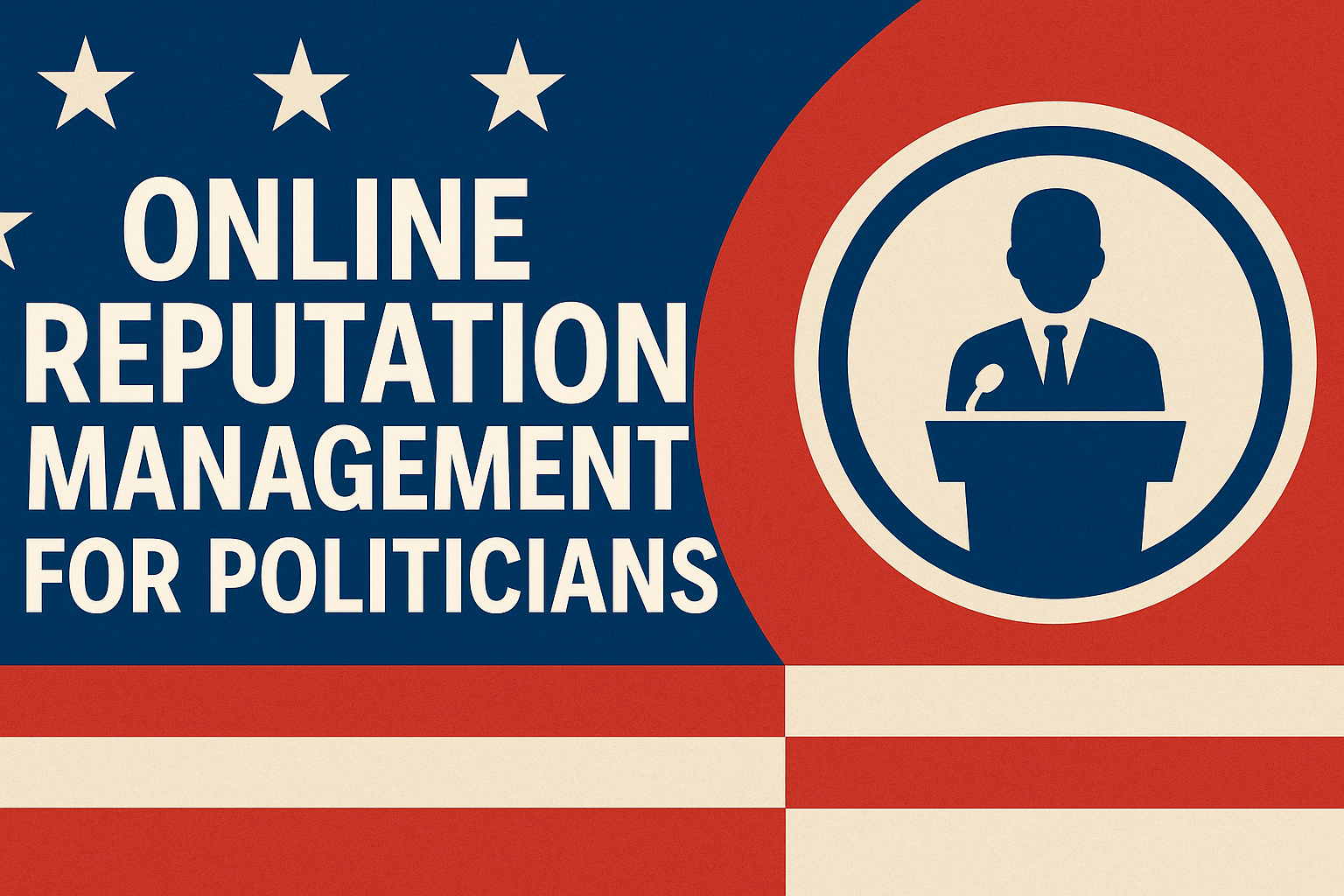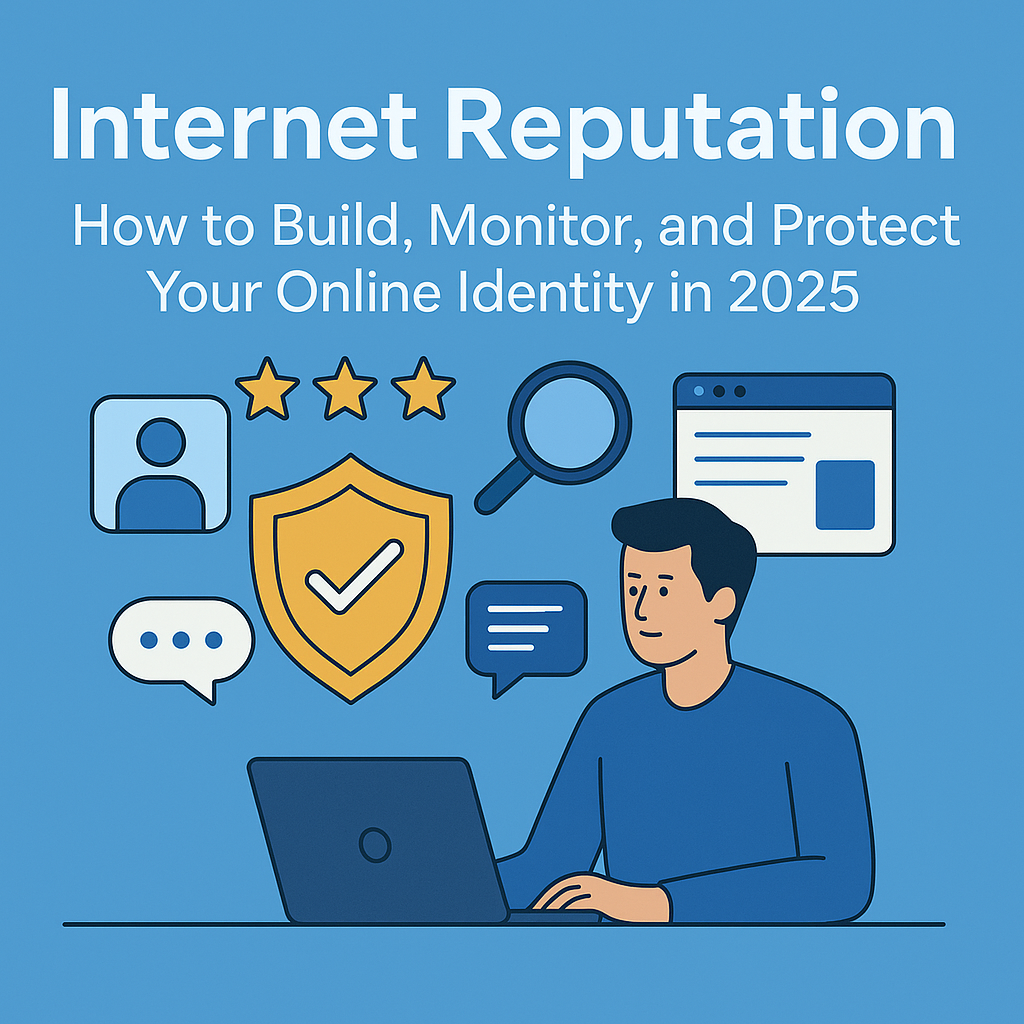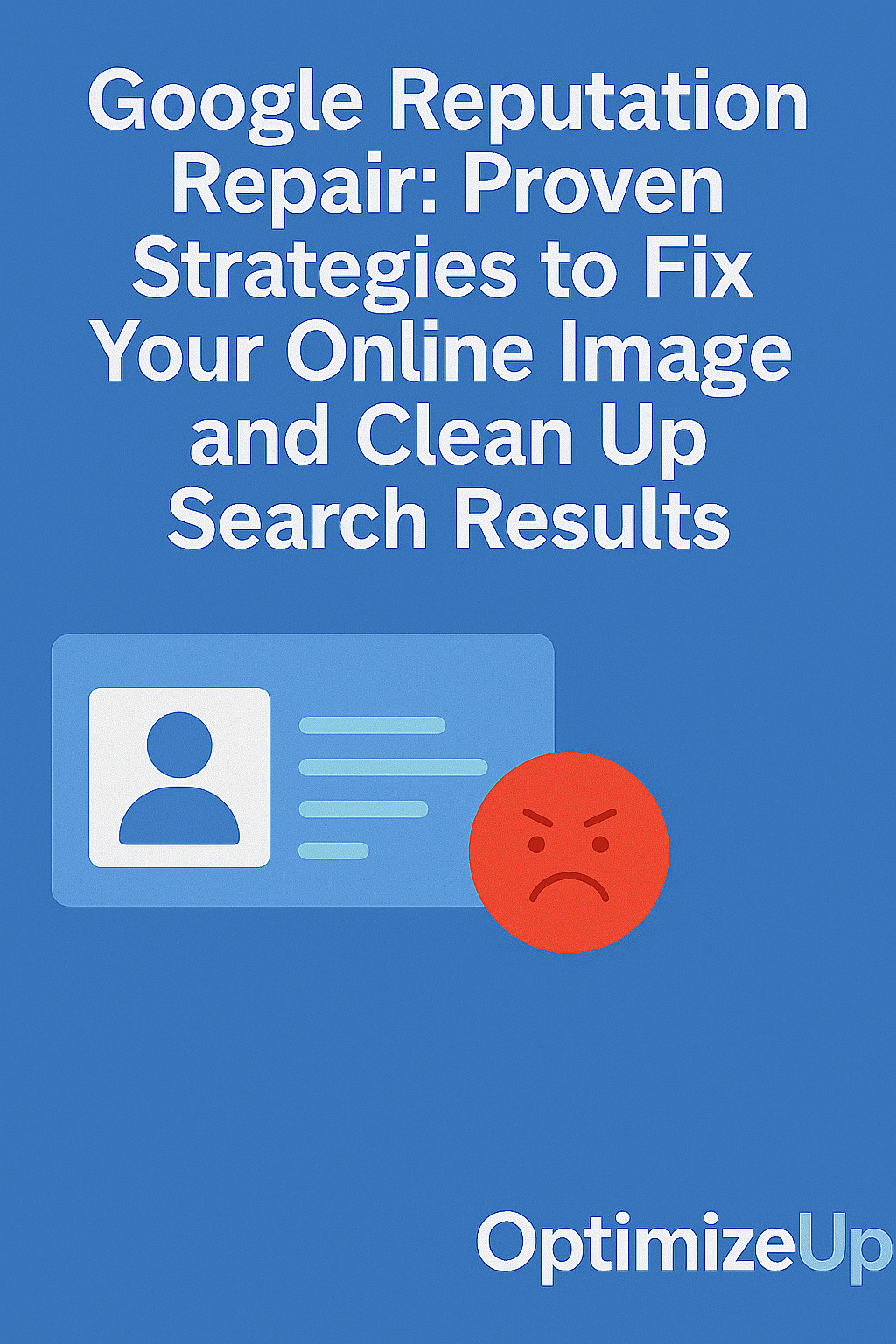In today’s political arena, where public trust is currency, online reputation management (ORM) for politicians is not just advisable—it’s essential. Political careers are won or lost based on perception, and perception is largely shaped by what constituents see online. Whether you’re a city council member, a governor, or running for office, your online footprint speaks volumes.
Why Reputation Management for Politicians Is Crucial
Politicians operate under intense scrutiny. A single misinterpreted tweet, out-of-context quote, or viral video can trigger widespread backlash. ORM serves as a safety net that protects reputations, maintains voter confidence, and provides a proactive platform for engagement.
Key Risks Politicians Face Online
- Disinformation campaigns, especially from foreign actors or political opponents
- Negative press coverage that remains visible for years
- Social media attacks from coordinated bot networks or outraged constituents
- Search engine results filled with outdated or unflattering content
- Viral scandals and gaffes that live forever on the internet
Without a proactive ORM plan, these challenges can define a politician’s narrative—and derail their career.
Building a Political Brand That Resonates
Define Core Values and Messaging
Start with clarity. Define what you stand for and ensure your values are consistently communicated across platforms. Your messaging should be authentic, simple, and resonate with both supporters and swing voters.
- Use a values-driven content strategy tailored to your target demographics.
- Align media statements, tweets, press releases, and speeches with your mission.
- Ensure consistency between online persona and real-world behavior.
Control the Narrative
You can’t stop critics from speaking, but you can ensure your version of the story dominates the conversation.
- Own your SERP (Search Engine Results Page) by publishing high-authority content across owned media properties.
- Maintain active social profiles and an optimized personal website with regular updates.
- Use structured data markup on your website to improve search visibility.
SEO-Driven Content Strategies for Politicians
Search engines are the first stop for voters researching candidates. An effective ORM plan includes:
High-Authority Publishing
- Guest posts in political and civic publications (e.g., The Hill, Politico)
- Opinion pieces in local newspapers and credible news outlets
- Regular blog posts on your campaign website outlining policy positions
Keyword Optimization
Target terms such as:
- “[Your Name] education reform stance”
- “[Your Name] economic policy plan”
- “[Your Name] community initiatives”
Use LSI (Latent Semantic Indexing) keywords to improve contextual relevance. Examples include:
- public image management
- media strategy for politicians
- political brand monitoring
- online reputation for elected officials
- voter perception control
- campaign public relations strategy
Video and Media Optimization
- Host interviews and town halls on YouTube
- Optimize titles, tags, transcripts, and descriptions with political keywords
- Create explainer videos on controversial issues to provide clarity and transparency
- Encourage embedding across websites and news outlets to increase backlink equity
Managing and Monitoring Social Media Effectively
Social media is both a megaphone and a minefield. Here’s how to use it wisely:
Establish a Clear Social Voice
- Maintain a consistent tone and vocabulary
- Define a distinct voice that aligns with campaign messaging and party values
- Develop pre-approved response templates for emergencies
Engage Authentically
- Respond to constituents respectfully, even when they disagree
- Host live Q&As or town hall streams to show accessibility
- Share behind-the-scenes content to humanize the political process
Monitor Mentions
Use tools like:
- Mention – tracks name mentions across web and social media
- Hootsuite Insights – monitors social sentiment trends
- Google Alerts – keeps tabs on news articles and blog references
These help identify trending concerns, misinformation, or potential crises early.
Handling Political Crises and Scandals
Every political figure will face criticism. The key is swift, transparent action.
Crisis Management Steps
- Acknowledge the issue immediately. Silence breeds suspicion.
- Release an official statement with verified facts and commitments.
- Provide context or corrections for any misinformation spreading online.
- Leverage allies, surrogates, and loyal supporters to amplify your message.
- Update your website and social platforms with FAQs and clarifications to reinforce transparency.
- Monitor public sentiment in real-time to adjust communications strategy as needed.
Crisis Simulation and Training
Prepare for crises before they happen. Run drills with campaign staff:
- Develop worst-case scenario playbooks
- Assign clear roles for internal response teams
- Practice public press conferences and social media responses
Suppressing Negative Search Results
Negative press and outdated information can dominate search results. ORM experts use these tactics:
- Publish new, high-authority content frequently to bury negative links
- Gain backlinks to boost domain authority of favorable pages
- Use image SEO to replace unflattering photos with branded visuals
- Utilize press syndication to flood SERPs with positive PR
- Consider legal pathways such as defamation lawsuits, DMCA takedown requests, or cease-and-desist letters where applicable
Legal Tools for Politicians Facing Online Defamation
Understanding Defamation and Libel
Defamation can take many forms—from falsified accusations to doctored videos. If false statements damage your career or credibility, legal remedies may be available.
- Work with an attorney familiar with media law, privacy statutes, and First Amendment protections
- File takedown requests with platforms hosting libelous content
- Identify anonymous posters using court subpoenas
Collaborate with Reputation Management Firms
Agencies like Optimize Up offer:
- Search result suppression
- Strategic content placement
- Legal coordination with media lawyers for cease-and-desist or removal notices
Building Trust Through Transparency
Voters value transparency. That doesn’t mean exposing every detail—rather, it means being honest when things go wrong and explaining your rationale clearly.
- Share mistakes and the lessons learned
- Post financial disclosures and campaign spending data
- Use newsletters to keep constituents informed of accomplishments and setbacks
Reputation Audits and Continuous Improvement
Reputation is not static. It evolves based on your public actions, legislative votes, media appearances, and community engagement.
Run Regular Audits
- What shows up when your name is Googled?
- Are the top 10 results favorable and accurate?
- Is outdated or incorrect information ranking?
Adapt Based on Feedback
- Monitor public sentiment using polls, social listening, and analytics tools
- Conduct regular surveys with constituents to understand their perceptions
- Pivot strategies based on emerging issues or public sentiment changes
Integrating ORM with Campaign Strategy
Your online reputation should be integral to campaign operations—not a last-minute fix.
- Coordinate closely with communication, PR, and legal teams
- Include ORM planning in debate prep and press strategy
- Use campaign ads and email newsletters to reinforce positive brand messaging
Choosing the Right ORM Partner
Not all ORM firms understand the nuances of political campaigns. A specialized partner like Optimize Up provides:
- Politically sensitive content strategies
- Real-time response and crisis management
- Election-cycle-specific ORM campaigns
- Performance reporting that ties directly to polling impact
Proven Strategies from Political Campaigns
Case Study Highlights
- A state senator facing media backlash over comments during a town hall used a rapid-response ORM plan to dominate SERPs with rebuttal op-eds and policy explainer videos
- A mayoral candidate improved trust metrics and donor engagement by publishing behind-the-scenes documentaries explaining key policy decisions and governance style
Why They Worked
- Timely, honest communication
- Clear, data-backed policy explanations
- Humanized the politician and countered media narratives
Expanding Influence Through Thought Leadership
Reputation management isn’t just about defense—it’s also about offense.
- Launch a thought leadership campaign by publishing whitepapers and op-eds on key issues
- Speak at industry events, civic roundtables, and nonprofit panels
- Collaborate with influencers and activists to co-author content or host events
These tactics build authority and can elevate a politician beyond their immediate constituency.
Frequently Asked Questions
It refers to the practice of shaping, protecting, and promoting a politician’s public image across online platforms, media outlets, and search engines.
Public opinion heavily influences political careers. ORM ensures that voters see accurate, favorable, and consistent information.
While it may not eliminate all fake content, ORM significantly reduces its visibility by pushing trustworthy information to the top of search results.
No. Ongoing reputation maintenance is crucial during office tenure, legislative milestones, and public controversies.
Optimize Up specializes in ORM for political figures, offering custom campaigns that include SEO, media outreach, crisis management, social strategy, and legal collaboration.





